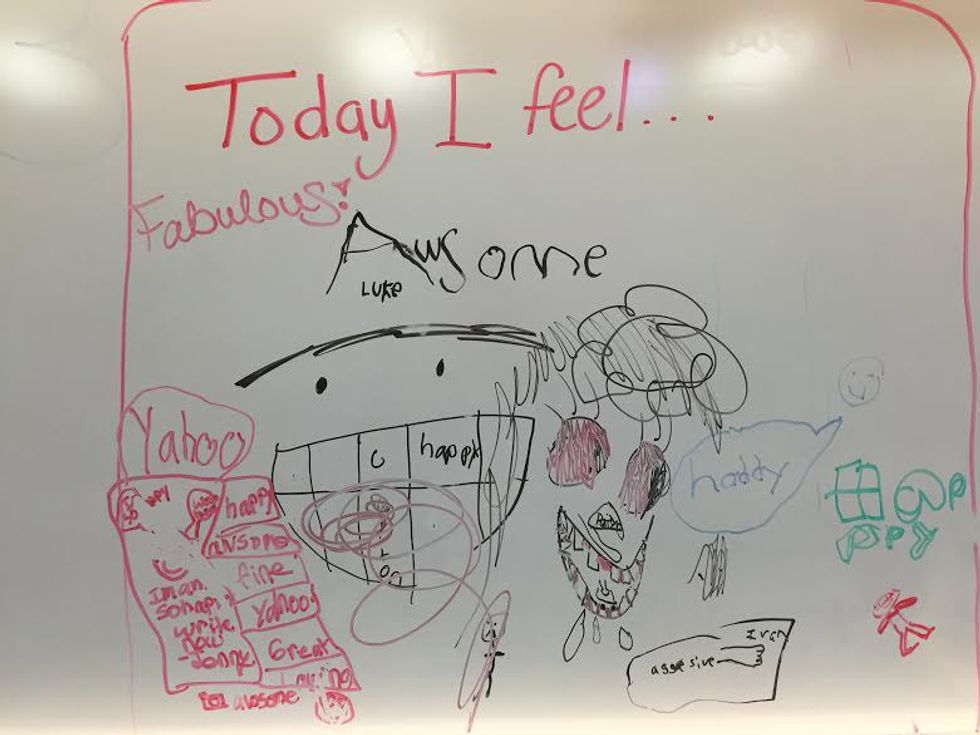During my summers, I have the pleasure of working as a camp counselor. One of the best parts of my job is watching the interactions between the little campers and attempting to contain my laughter at all the hilarious things they say. It is for this reason that I often find myself listening in on their conversations. It was while doing this last week that I overheard one of the best introductions between two eight-year-olds. One little boy turned to his new friend and said, "My name is Connor and I suffer from depression. If I ever seem unhappy, do not think I'm mad at you, please."
I was amazed at how open this little one was about something so personal. Since I had access to his health form, I knew that Connor really did suffer from depression. Even more amazing than Connor's open approach to handling his depression was when his new friend responded, "Well if you ever need a good laugh, I know some really funny jokes."
I couldn't help but be affected by this little conversation between two of my campers. The best thing about this particular interaction between Connor and his new friend is that it is not one in a million. I am happy to say that, between the "Yo Mama" jokes and Minecraft trivia, there are beautiful conversations between kids a third of my age who show more love and understanding than most adults do.
I tried to imagine if the interaction would have been the same if it had occurred between two adults. I came to the conclusion that it would not and became very aware that children have the unique and beautiful ability to accept other's differences and be understanding of them. It seems so obvious that children are not born with prejudice or stigmas ingrained in them, but those are traits they learn.
By offering to tell Connor a joke, this eight-year-old was offering to help in the only way he knew how. Perhaps he didn't fully understand the mental illness and all it entails, but he offered help and understanding nonetheless. This is a vast contradiction to the popular claim that prejudice stems from ignorance. While that may be true in some cases, this eight-year-old boy proved it is possible to not fully understand, but still offer acceptance.
The following week, I found myself thinking about Connor and how open he was with his emotions. I was working with a group of six-year-olds and decided to do a small social experiment. I simply asked them to write how they felt on the white board. To my surprise, the only person to write using only words was an 18-year-old assistant who was working in the camp. The six-year-olds all used pictures, colors, and images to express how they felt that day. This only solidified my belief that children have a beautiful ability to express themselves in a way that is somehow lost during adulthood.
While I may be considered to be the teacher during summer camps, there is much more my campers could teach me about love and understanding.





















